Iraqis wanted to topple the system, but taboos fell instead
Prime Minister Adel Abdel Mahdi resigned in December, only to be replaced by ex-minister Mohammad Allawi
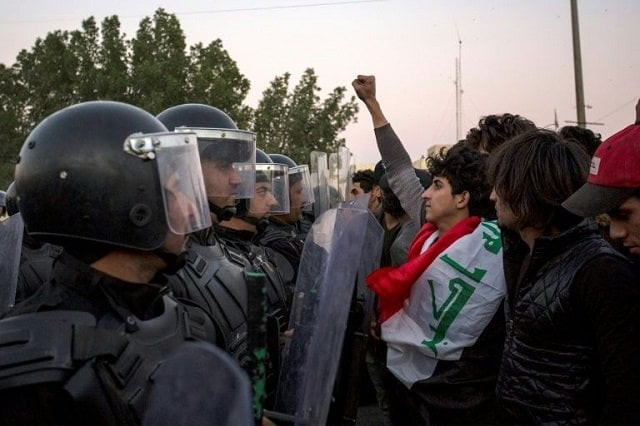
Iraq's protest movement is now at a crossroads, as numbers dwindle in the face of an intimidation campaign.PHOTO: AFP
Since October, the country of 40 million has been rocked by a historically large grassroots movement with big goals: ending corruption, unaccountable sectarian parties and overreach from neighbouring Iran.
Prime Minister Adel Abdel Mahdi resigned in December, only to be replaced by ex-minister Mohammad Allawi, slammed by protesters as too close to the ruling elite.
Irked US squeezes Iraq with cash delays, short waivers
But what they have so far been unable to win politically, demonstrators have made up for with social change.
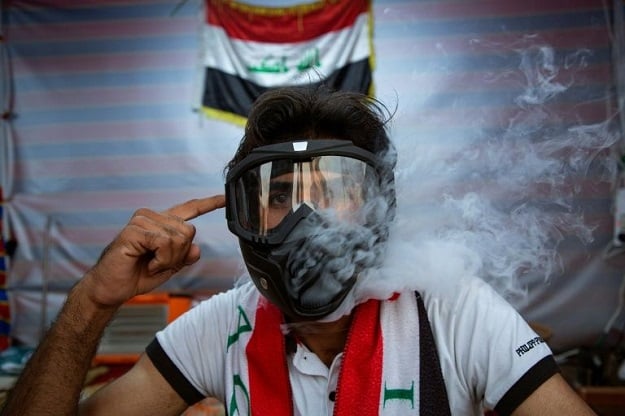 Young Iraqis are rejecting the social mores of an older generation.PHOTO: AFP
Young Iraqis are rejecting the social mores of an older generation.PHOTO: AFP"We scored one goal by bringing down the government, but socially we achieved much more," said Ali Khraybit, 28.
His best friend just proposed to a girl he met marching in Baghdad's Tahrir Square, the anti-government movement's epicentre.
Like other squares across Iraq's mainly-shia south, Tahrir has become a social experiment, a free space where conservative norms have been toppled.
Youth chant against a once-untouchable cluster of politicians and paramilitary commanders, and women spend nights in tents next to adult men.
Students defy orders to return to class and neighbourhoods once seen as dangerous are buzzing with people en route to demonstrate.
Slogans like "Forget outdated traditions," "End classism" and "No more differences" are trending on Twitter in Iraq.
"Tahrir lets us dream," wrote one activist whose friend -- who ekes out a living driving a rickshaw -- had fallen in love with a medic from a prestigious family.
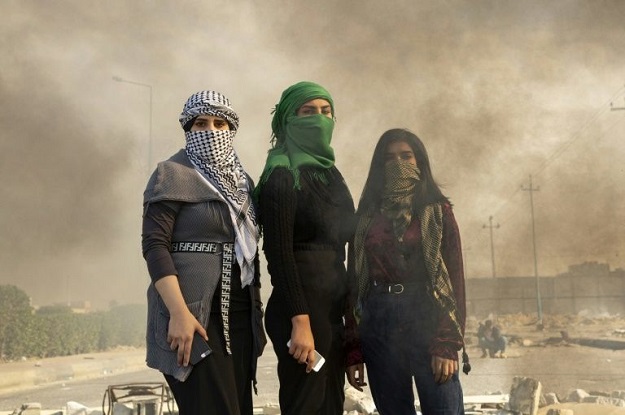 Iraqi women are challenging taboos by taking a front seat role in the country's protest movement .PHOTO: AFP
Iraqi women are challenging taboos by taking a front seat role in the country's protest movement .PHOTO: AFPSince the 1970s, Iraq has endured Saddam Hussein's authoritarian regime, back-to-back wars and devastating sanctions that isolated it from the world.
There were few cellular phones and barely any internet access until the 2003 US-led invasion that collapsed Saddam's nominally secular regime.
Sectarian fighting gave rise to hardline Shia and Sunni militias as society became more divided and religious.
When Iraq defeated the militant Islamic State group in 2017 after years of fighting and displacement, many anticipated long-overdue peace and prosperity.
"The young generation was in a coma for many years, but stability opened their eyes to the truth: there is more to life than just surviving," said protester Ahmad Haddad, 32.
"There's living in dignity in a civil society, breaking conservative norms and loosening the grip of religious parties," said Haddad.
But instead of easing into normality, it was a sudden uprising that transformed Iraq.
Hiyyam Shayea, a 50-year-old teacher in protest-hit Diwaniyah province, can testify to that.
"There were some huge, surprising changes to a lot of social affairs," said Shayea, wearing a traditional black robe at a recent rally in her hometown.
Such a stance had long been unimaginable in the south, where tribal customs trump federal law and restrict women's public role.
But it has come at a high price. Around 550 people have been killed and 30,000 wounded in protest-related violence.
"That was all for a homeland -- one that's civilised and civil, not backwards and outdated," said Shayea.
Some are resisting the changes, describing rallies as hotbeds of promiscuity, alcohol and drugs, fuelled by the West.
Leading Iraqi cleric Moqtada Sadr has tried to discredit the movement with such claims, insisting men and women stay separate and protests be "cleaned."
Women swiftly organised their own rally mocking Sadr, long untouchable because of his violent past as a militiaman and his diehard followers.
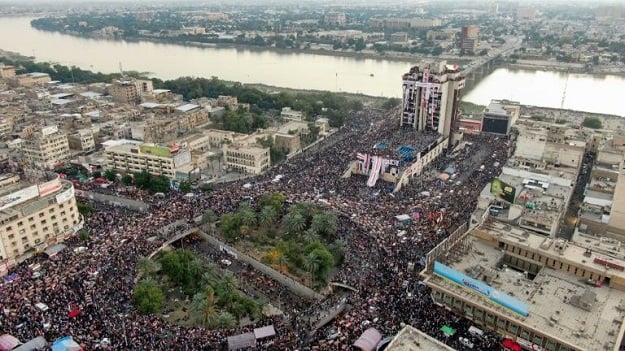 Baghdad's Tahrir Square has become a social experiment where conservative norms no longer apply.PHOTO: AFP
Baghdad's Tahrir Square has become a social experiment where conservative norms no longer apply.PHOTO: AFPIn the protests' early days, angry crowds slapped shoes against portraits of paramilitary leaders and Iranian general Qasem Soleimani, who held tremendous sway in Baghdad and was never publicly criticised.
Soleimani was later killed in a US strike.
Demonstrators also railed against "muhassassa," the sectarian power-sharing system governing Iraq after Saddam.
Few current protesters are old enough to remember Saddam -- 60 percent of the population is under 25 -- and blame their elders for Iraq's slide into broken politics.
The rallies exposed "a huge rift" between the two generations, Iraqi researcher Khaled Hamza told AFP.
"We're in the middle of a spontaneous movement by a group of youth who weren't expected to be responsible for achieving what our generation couldn't," said Hamza, who is in his 60s.
Protesters recognise it, too. In Baghdad, a woman in a pink headscarf carried a sign: "In the end, I made a revolution. What did you do?"
Further south in oil-rich Basra, Heba, a protester in her 20s, said the rallies have changed her.
"They strengthened our personalities, made us distinguish between right and wrong and demand our rights," she said.
In Iraq, protesters in last stand against a former ally
The movement is now at a crossroads: numbers have dwindled as activists face an intimidation campaign and parties seek to recapture momentum with a new cabinet.
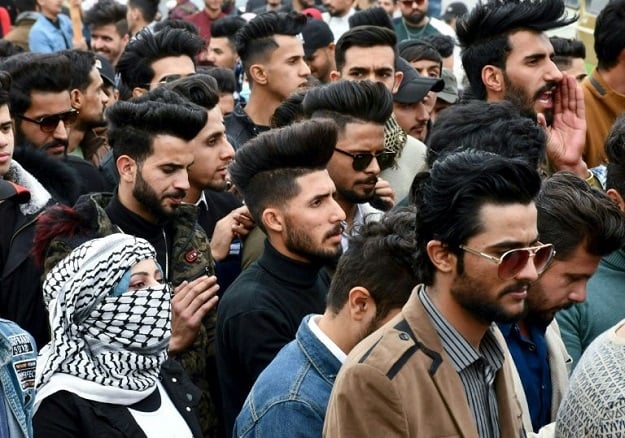 Iraqi students take part in an anti-government march in Nasiriyah.PHOTO: AFP
Iraqi students take part in an anti-government march in Nasiriyah.PHOTO: AFP"Now, it's time to unite under a new vision, a plan that addresses Iraqis' needs," said protester Mohammad al-Ajeel.
"What's happening is huge, but it's new for us. We can't expect everything to happen overnight," said Ajeel, a businessman living between Iraq and the UAE.
"It may need years."



1726734110-0/BeFunky-collage-(10)1726734110-0-208x130.webp)
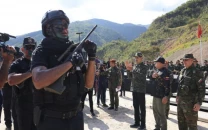
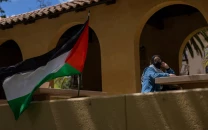













COMMENTS
Comments are moderated and generally will be posted if they are on-topic and not abusive.
For more information, please see our Comments FAQ